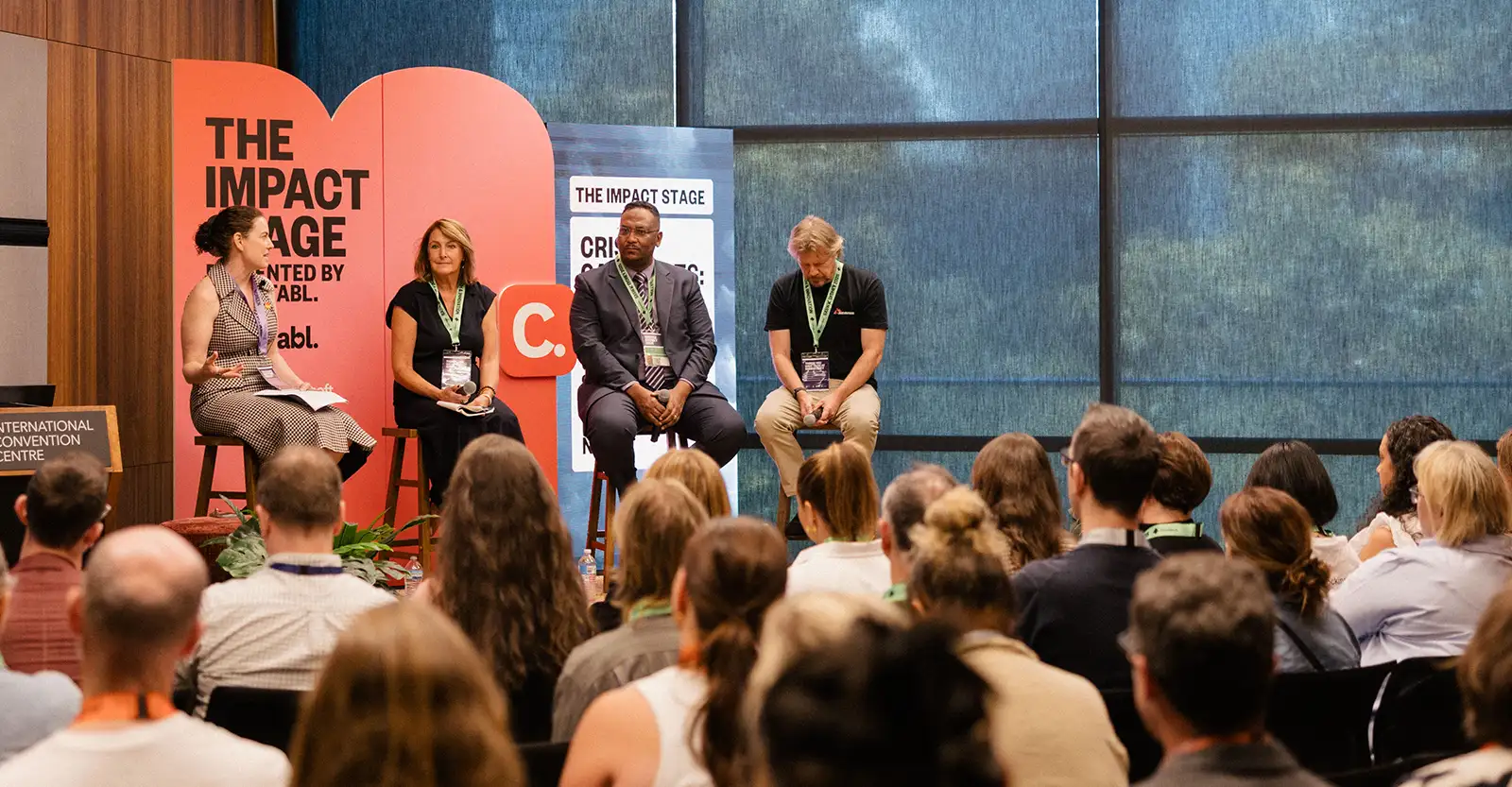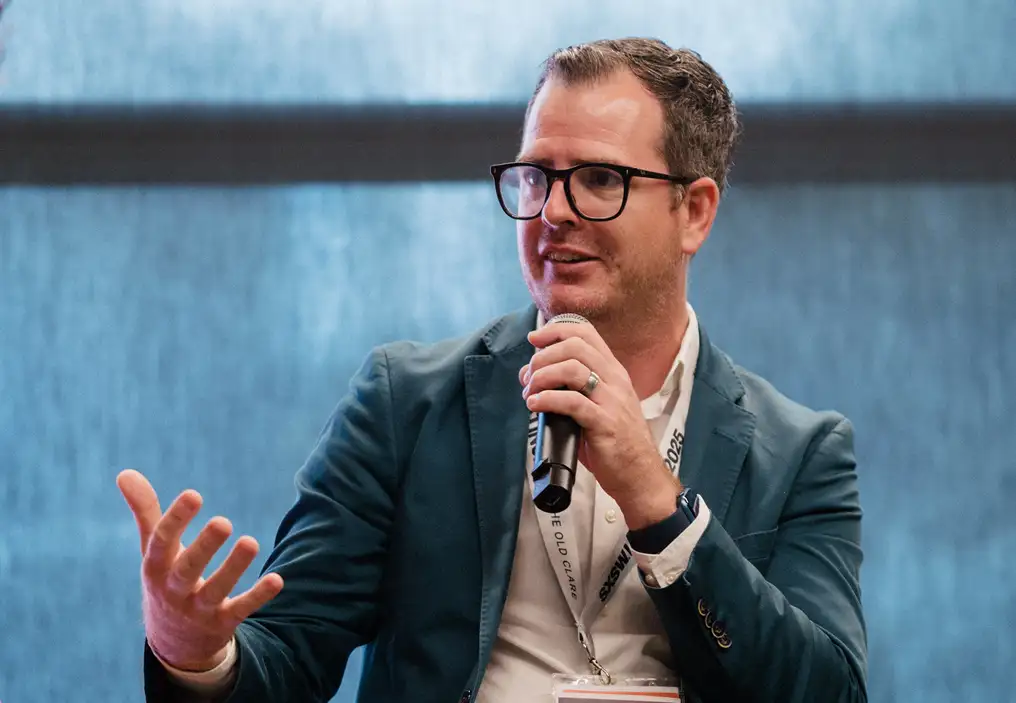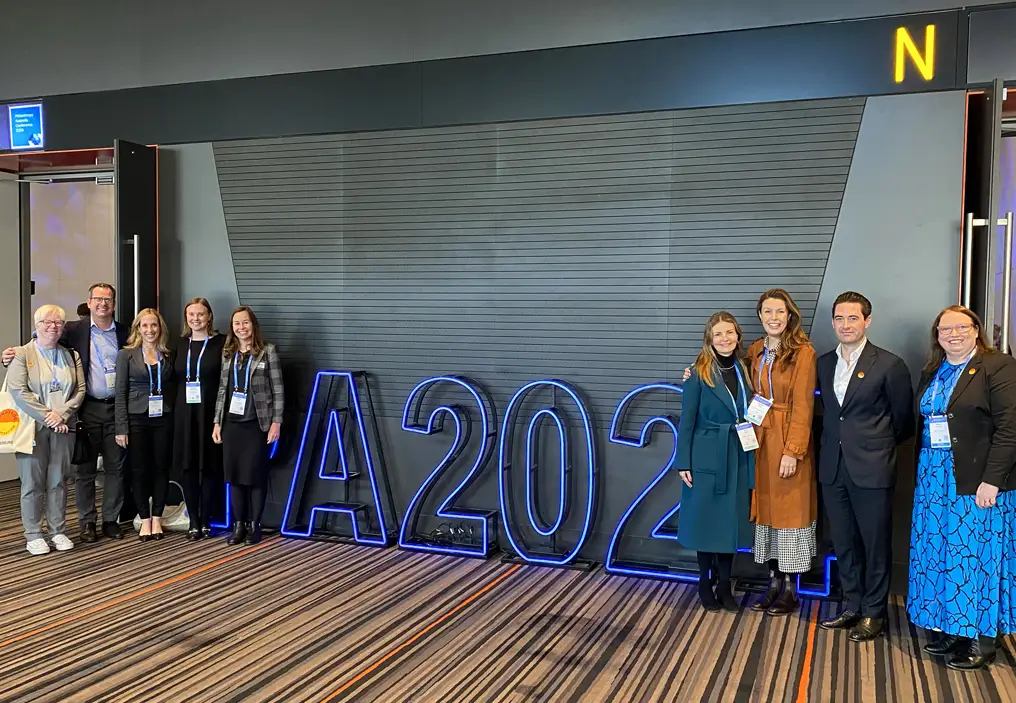When Dr Alaeldin Elmalik spoke about losing a loved one in Sudan’s ongoing conflict, the audience watching the conversation at the Impact Stage, SXSW Sydney fell silent.
by Kate Powl, Minderoo Foundation
A trauma physician based in Melbourne, Dr Elmalik shared how personal loss became his motivation to keep helping others. If he and his colleagues can save just one life, he said, it gives meaning to the pain. He reflected:
As the President of the Sudanese Australasian Medical Professionals Association (SAMPA), Dr Elmalik leads a network of Sudanese medical professionals and diaspora community across Australia. It works with similar networks in Canada and other countries around the world who endeavour to deliver medical aid to communities in Sudan that the ‘traditional’ humanitarian sector has not been able to reach due to ongoing conflict and access issues in the country.
From funding hospital equipment to establishing the first trauma unit for spinal cord and brain injuries, and sponsoring hundreds of families with food and water each week, their work shows how compassion and mutual aid can bridge the gaps that politics and bureaucracy leave behind.

This was the focus of Crisis Catalysts, a session on the SXSW Sydney Impact Stage that brought together Catherine Green, Head of Urgent Challenges at Minderoo Foundation, Simon Eccleshall, Head of Programs at Médecins Sans Frontières, Dr Elmalik for SAMPA, and Julie Rosenberg, Executive Officer of the Australian International Development Network.
The conversation explored how humanitarian organisations and communities affected by crisis are adapting in a world where access is restricted, funding is shrinking, and some crises fade from the headlines.
With 40 per cent of global humanitarian funding cut over the past year as the US and other major donor countries reduced their Official Development Assistance (ODA), many aid organisations have been forced to find new ways to reach people in need.
Simon Eccleshall spoke about the challenge of delivering medical care in conflict zones where access is nearly impossible, and how the information revolution is now a lifeline for getting stories out of those places. Sharing lived experiences and evidence from the ground helps people understand what is really happening, and builds trust in how and where aid is delivered.
In this new wave of giving, people are more discerning about who they support and how funding is used, and access to accurate information plays a key role in that decision-making.
Minderoo’s Catherine Green has worked in the humanitarian aid sector for more than 20 years. She reflected on what is fair and equitable in today’s world, and how difficult it can be to find hope in a funding-constrained environment.
Amid the stories of courage and innovation, Catherine reminded the audience that we all have a role to play in responding to crisis.
“Philanthropy isn’t just the work of big foundations,” she said.
Julie Rosenberg echoed this, sharing how greater collaboration across charities, funders and grassroots groups can amplify impact and ensure that help reaches people faster.
At its heart, Crisis Catalysts was a call to action to rethink what it means to give, and to recognise that every act of generosity, no matter how small, helps shape a more resilient world.
🎥 Watch the full session: Crisis Catalysts – Innovation in Humanitarian Aid
The Impact Stage at SXSW Sydney 2025 was presented by Charitabl. in partnership with Minderoo Foundation and Microsoft, presenting a curated space for conversations that matter, ideas that move us forward, and a vision for a more generous future.

